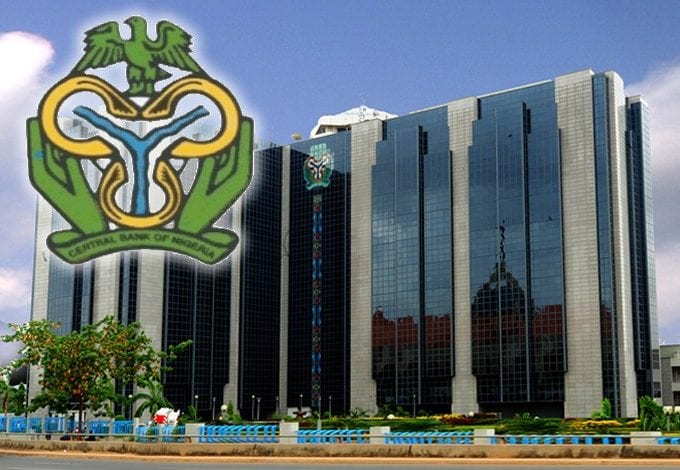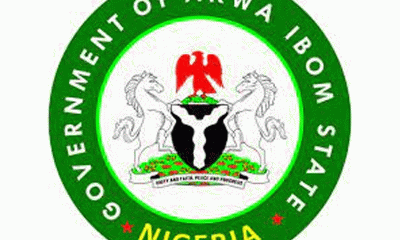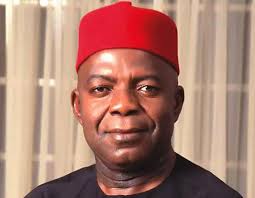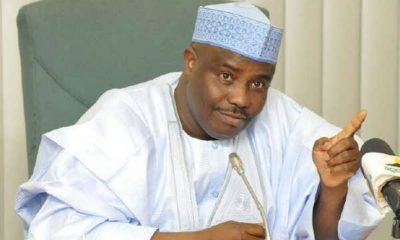BUSINESS
Diversified Economy Will Unlock Forex Quagmire

By Chisom Adindu
Lately, the country’s external reserves started heading south after impressive accretion over months. This is despite rising international prices of crude oil. No doubt, this sudden reality has however put spikes in the Central Bank of Nigeria (CBN)’s efforts of maintaining stable Naira exchange rate making it herculean as ever.
As of December 2021, Nigeria’s external reserves was in the region of $40.
5bn having grown about $5.2bn, representing 14.5 per cent rise compared to 2020. This has also brought to fore, the urgent need to be decisive and committed to economic diversification by the federal authorities. Continuous reliance on oil as the major source of earnings is no longer sustainable. Diversifying the economy to agriculture and non-agriculture products as was witnessed during pre-oil era is the panacea to this quagmire.This we also saw in flashes during the last two economic recessions. Indeed, agriculture and non-agriculture products hastened the country’s exit from the recessions. Oil never did. The role agriculture and other non-oil products played was evident of the unrelentless efforts of the Central Bank of Nigeria, boosting Nigeria’s productive capacities with its interventions in the economy to reduce import dependence, embrace backward integration and increase export earnings.
Undeniably, we have not witnessed any significant effort from the fiscal authorities, commensurate with the zeal exhibited by the Bank to ensure a friendly economic environment, conducive for businesses to thrive. Defending the Naira has assumed a renewed pressure, making market watchers suggest a further devaluation of the currency.
This is also because of Nigeria’s import bills gradually climbing amidst global inflationary pressures, thus causing a surge in the cost of key economic commodities as Premium Motor Spirit (PMS), food items and materials for manufacturing. For some months running, the country has been unable to meet her 2.5m barrels per day OPEC production quota, producing only 1,197m barrel per day. Simply because of decaying infrastructure, crude oil theft, and technical inadequacies among others.
Unabating security challenges, crippling farming, and other economic activities in some key food belt areas in the country are further compounding the woes of the domestic currency as investors stay away, while rent seekers are having a field day. With the Central Bank of Nigeria being the only supplier of foreign exchange, foreign investors taking ‘a siddon look’ approach due to apprehensions over ‘over-valued’ Naira, artificial low interest rate and pre-2023 general elections agitations, the reserves may further continue the downward slides, except the fiscal authorities take urgent steps to address these challenges. Major of it all is the insecurity.
This is because if not tackled headlong, CBN’s numerous interventions to galvanize and diversify the economy through agriculture and non-oil products may amount to nothing. The government must fix the decayed infrastructure in the oil and gas sector, making agriculture as a business endeavour enticing to the youths if the hope of diversifying the economy is to be a reality and not the same perennial mouthing of economic diversification we all grew up hearing but has been a mirage.
Equally, some fiscal authorities saddled with the responsibility of fashioning policies to grow the economy should approach the Bank for knowledge sharing and partnership for the onerous task of economic viability and healthiness. The Central Bank of Nigeria has been commended for its supportive efforts in the economy and is being misconstrued in some quarters as de facto Ministry of Agriculture and Rural Development, simply because, the Ministry of Agriculture seemed comatose.
The Bank also has been accused of biting more than it can chew, overburdening itself with mandates outside its purview. But would the Bank also sit back and watch the economy go down and do nothing, when the economy it is to maintain monetary and price stability, control inflation, maintain external reserves, safe-guarding the international value of the Naira, as well as promoting sound financial system is collapsing?
*Chisom Adindu writes from Awka
BUSINESS
Nigeria Customs Set to Review License Rates of Agents

By Tony Obiechina Abuja
The Nigeria Customs Service (NCS) said it has commenced consultations with stakeholders on planned review of licensing renewal fees for Licensed Customs Agents.
This was disclosed during a high-level stakeholders’ engagement with executives of the Association of Nigerian Licensed Customs Agents (ANLCA), the National Association of Government Approved Freight Forwarders (NAGAFF), the Africa Association of Professional Freight Forwarders and Logistics of Nigeria (APFFLON), and Customs Consultative Committee (CCC), held at the NCS Headquarters recently in Abuja.
In a statement by NCS spokesman, Abdullahi Maiwada on Sunday, the meeting marked the first in a series of consultation sessions to be held with industry players ahead of the planned implementation.
The licensing of Customs Agents remains a critical component in safeguarding the integrity of Nigeria’s cargo clearance process. The planned review is intended to reflect prevailing economic realities, including the value of exchange rates, address operational demands, and ensure that only agents who meet the Service’s compliance, competence, and integrity requirements continue to operate within the system.
The initiative is aimed at promoting accountability, streamlining processes, and enhancing the quality of service delivery in the sector.
The Service emphasised that the review forms part of broader modernisation efforts targeted at repositioning the NCS to meet the evolving needs of international trade and border management. It is expected to create a more transparent, predictable, and efficient licensing regime that will ultimately benefit legitimate operators and the trading public.
The new licensing structure is scheduled to take effect from January 2026, following the conclusion of stakeholder consultations.
Furthermore, Licensed Customs Agents who comply with the new licensing structure will enjoy access to premium facilitation measures, including faster processing timelines, improved engagement channels with Customs officers, and enhanced integration with the Service’s upgraded digital platforms.
This compliance-driven incentive is designed to encourage adherence to professional standards while discouraging sharp practices.
The NCS reassures stakeholders of its commitment to an inclusive process and notes that feedback from industry associations, individual operators, and relevant government agencies will be carefully considered before the finalisation and implementation of the review. The Service also reiterates its dedication to fairness, transparency, and the promotion of a secure, competitive, and efficient trading environment in Nigeria.
BUSINESS
Nigeria Exports 663m Metric Tonnes of Products within ECOWAS in Six Months

The Nigeria Export Promotion Council (NEPC), said Nigeria exported products worth 663 million metric tonnes to 11 ECOWAS countries in the first half year of 2025.
The Director-General of the NEPC, Nonye Ayeni, made this known to newsmen, while presenting a report on first half of 2025 Non-Oil Export Performance, in Abuja on Sunday.
Ayeni said that the figure showed an increase in exported products as against the same period in 2024.
“In the same vein, Nigeria exported 488 million metric tonnes of products worth 83.538 million dollars to 21 African countries outside ECOWAS.
“This is reflecting an increase of 2.59 per cent of the total export value as compared to 1.
96 per cent for the same period of 2024.“It also lends credence to the fact that the African Continental Free Trade Area (AfCFTA) holds the key to intra-African trade.
“Indeed, Nigeria’s active participation in the AfCFTA is a testament to the significant opportunity it offers to exporting companies, also Small Medium Enterprises (SMEs),” she said.
Ayeni said that the effort would help to boost regional trade and drive economic growth across the African continent.
She, therefore, commended the Ministry of Industry, Trade and Investment, on its commitment in ensuring that Nigeria becomes a hub and a major player in economic development.
She said of the top 20 leading export companies, Indorama Eleme Fertiliser and Chemical Ltd and Starlink Global and Ideal Ltd, maintained their position as the first and second.
According to her, the companies maintained their position with 11.92 per cent and 8.82 per cent, respectively.
She said that in the period under review, a total of 29 banks participated in processing export transactions.
“A total of 10,214 Nigeria Export Proceed Forms (NXPs) were opened through these banks for non-oil exports with Zenith Bank Plc leading the pack with 31.98 per cent of the total NXPs for non-oil export.
“While First Bank Nigeria Plc and Guaranty Trust Bank Plc came second and third, with 12.44 per cent and 11.47 per cent, respectively,” she said.
The director-general said that a total of 18 exit points were used in exporting non-oil products from Nigeria during the period under review.
She said that the exit points included eight seaports, three international airports and seven land borders, adding that 94.15 per cent of the total non-oil exports were routed through seaports.
The NEPC boss said that in the period under review, the council organised over 252 capacity building programmes, with a total of 27,352 participants across the country.
She said that the training focused on documentation and procedures and export readiness.
“We also carried out training in the area of Good Agricultural Practices (GAP), Good Warehousing Practice (GWP), Good Manufacturing Practice (GMP), packaging and labelling, among others”.
| ReplyReply allForwardAdd reaction |
BUSINESS
FG Pushes for Modern Equipment to Boost Manufacturing

The Federal Government has said that Nigeria must transition from importing used industrial scrap to deploying world-class, resilient manufacturing solutions as part of efforts to reposition the sector for global competitiveness.
The Minister of State for Industry, Sen.
John Enoh, stated this on Wednesday during the 2025 edition of the Nigeria Manufacturing and Equipment/Nigerian Raw Materials Expo held in Lagos.Enoh declared that Nigeria could not continue to rely on outdated and imported equipment if it hopes to achieve true industrial sovereignty.
He said, “We must move from importing used, you know, industrial scrap, because most of them, that’s what they are, to deploying world-class solutions built for resilience, for sustainability.
”The minister noted that manufacturing currently contributes less than 10 per cent to Nigeria’s Gross Domestic Product and that the government is working to reverse the trend by prioritising domestic production and adding value to local raw materials.
He added that the government was finalising a Draft National Industrial Policy, which would place technology adoption, equipment financing, and power integration at the core of manufacturing innovation.
The industry minister noted that the policy is also aligned with President Bola Tinubu’s Renewed Hope Agenda, particularly the goal of diversifying Nigeria’s economy across key sub-sectors, including textiles, automotive, and agro-processing.
Enoh commended the Manufacturers Association of Nigeria, the Raw Materials Research and Development Council, and other stakeholders for working collaboratively to develop a “fit-for-purpose” policy framework.
He explained that through the planned Made-in-Nigeria campaign, likely to be anchored by the Pro-Nigeria Secretariat, the Federal Government would support certification, digital marketplaces, and media visibility for locally produced equipment and innovations.
The Minister also revealed that the government is harmonising efforts across ministries and agencies such as the Bank of Industry, the Nigeria Export Processing Zones Authority, the Nigeria Industrial Policy Council, and the National Agency for Science and Engineering Infrastructure.
He urged Nigerian manufacturers and innovators to see the Expo not just as a marketplace but as a mandate to forge strategic technology transfer partnerships and explore modular, mobile, and decentralised equipment models for underserved regions.
He also urged the stakeholders to collaborate with tertiary institutions to co-design Nigeria-specific machines and define sustainability as industrial sovereignty and inclusive economic development.
President of the MAN, Francis Meshioye, in his remarks, described the expo as an opportunity to transform intentions into innovation and enhance Nigeria’s industrial competitiveness.
He said, “We embarked on a remarkable journey, not just about showcasing capabilities, but about exploring partnerships, innovation, and sustainable practices that can propel our industry to prosperity.”
Meshioye commended participants for their enthusiasm and urged stakeholders to reflect on how insights from the event could reshape business strategies.
“The theme of this year’s expo, ‘Accelerating Sustainable Manufacturing Through Cutting-Edge Equipment and Technology Solutions’, strongly resonates with our industry’s needs,” he said.
He added, “We must make manufacturing desirable, attractive, and a household name.”
Highlights of the day included panel discussions on sustainable innovation and technology transfer in manufacturing, the growth mindset of women in manufacturing and leveraging international partnerships.
The panellists included the Consul General of India in Lagos, Chandramouli Kern; Chief Executive Officer of PROPAK, George Pearson; Senior Trade Consultant (West Africa), VDMA, Kayode Jegede; and CEO of Open Access Data Centres, Dr Ayotunde Coker, among others.
The three-day expo brought together key government agencies, private sector players, equipment manufacturers, innovation hubs, and academia to deliberate on strategies to deepen local production capacity, reduce reliance on foreign inputs, and build an inclusive, sustainable industrial future.




























